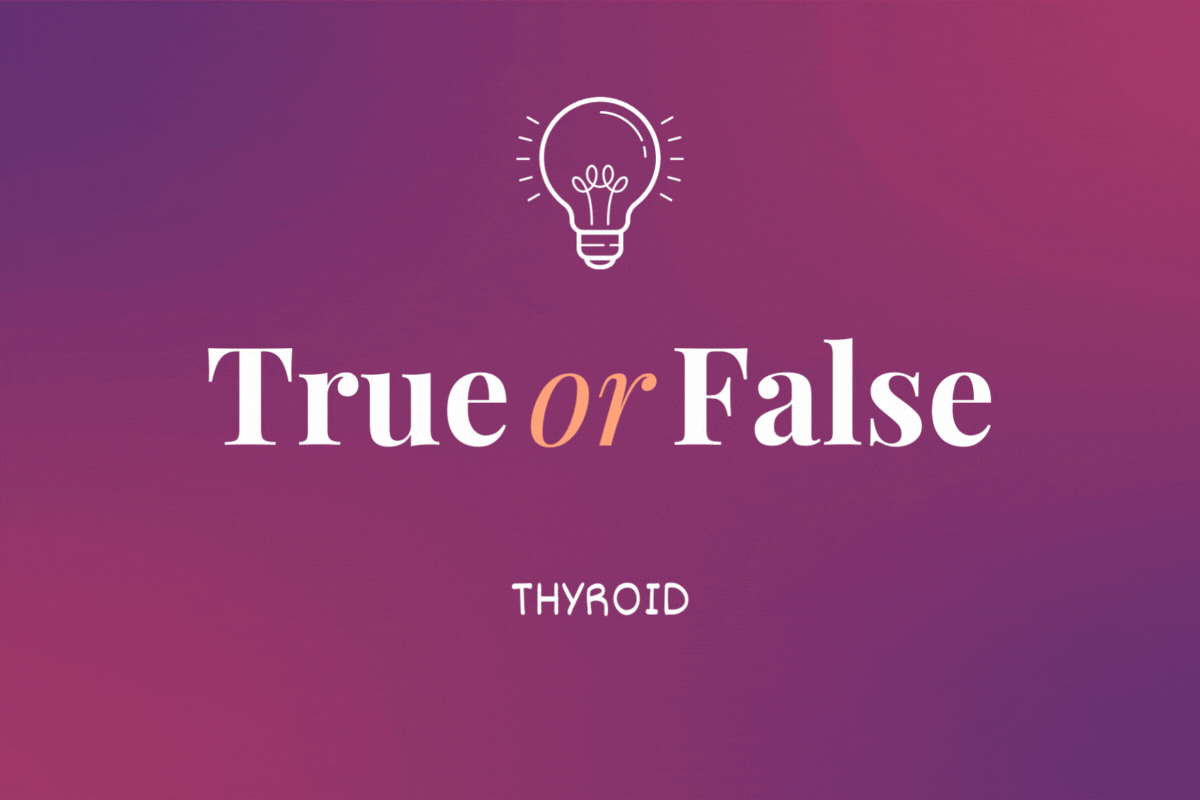
True or False? Thyroid
Take our quiz to see what you know and learn important information about your thyroid
Jan 31, 2024
Conditions & Treatments
Take our quiz to see what you know and learn important information about your thyroid
January is Thyroid Awareness Month.
Your thyroid is a small, butterfly-shaped gland in your neck. But don’t let the delicate description fool you. Your thyroid has a huge impact on your physical and mental health.
The thyroid produces hormones which help control metabolism (the process of turning food into energy) and other bodily functions. Too much or too little thyroid hormone can affect your weight, your period — even your brain.
About 1 in 8 women and people assigned female at birth in the U.S. will have a thyroid problem at some point in their lives. And thyroid disease is common — about 20 million people in the U.S. have some form of thyroid disease. But as many as 6 out of 10 people don’t know they have it.
HGTV’s Jenn Todryk Gets Candid About Managing Hashimoto’s Disease >>
Take our quiz to learn more about your thyroid and symptoms of thyroid disease.
Correct
Incorrect
Correct
Incorrect
Correct
Incorrect
Correct
Incorrect
Correct
Incorrect
Correct
Incorrect
Correct
Incorrect
Correct
Incorrect
Correct
Incorrect
Correct
Incorrect